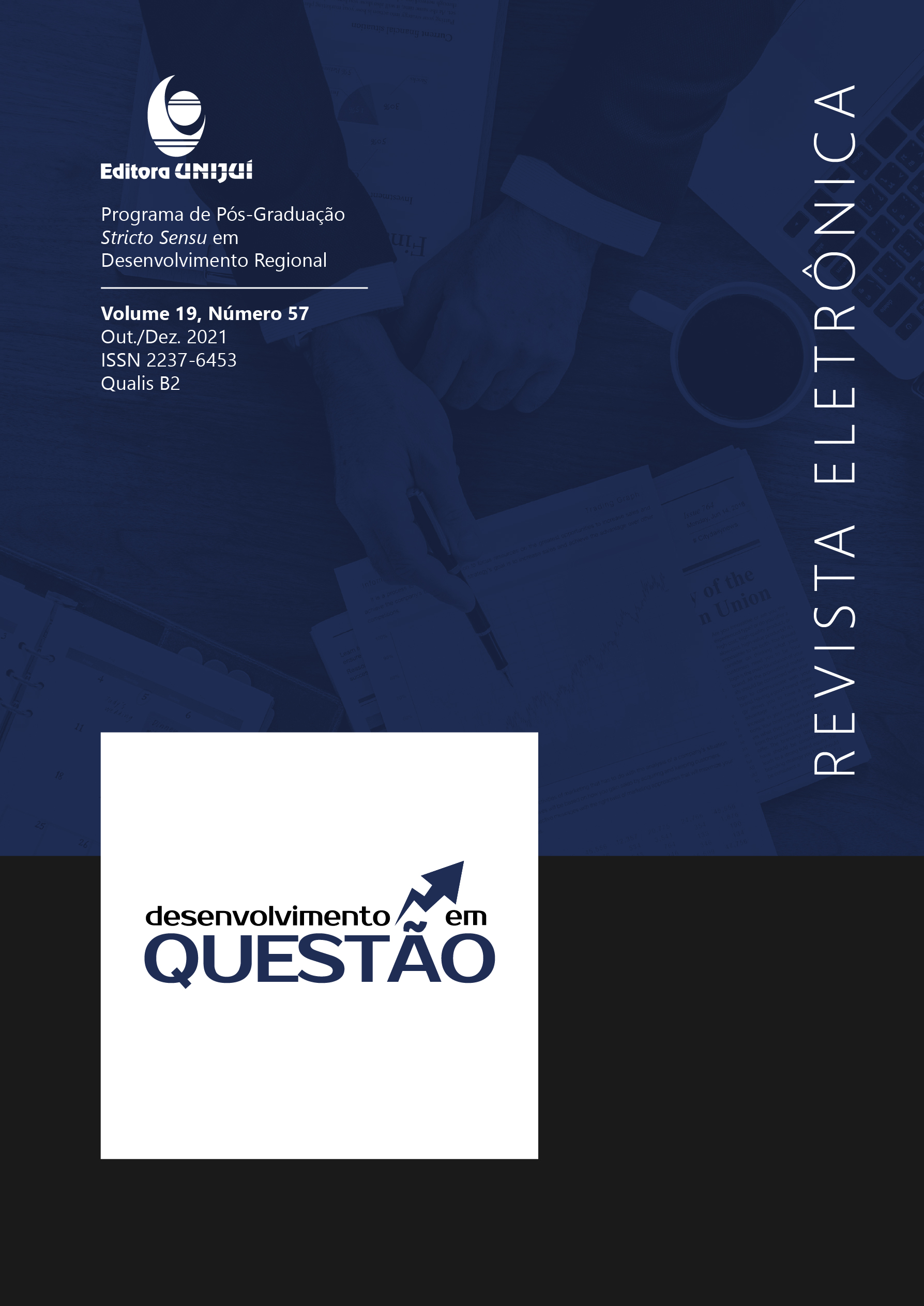Estado de Insolvência e Modelo Fleuriet: o caso da Avianca Brasil
INSOLVENCY AND FLEURIET MODEL: THE CASE OF AVIANCA BRASIL
DOI:
https://doi.org/10.21527/2237-6453.2021.57.10907Palavras-chave:
Companhia Aérea, Insolvência, Modelo FleurietResumo
Este artigo mostra que o estado de insolvência da companhia aérea Avianca Brasil era previsível, de modo que medidas corretivas poderiam ter sido tomadas. A análise é conduzida a partir do uso do modelo Fleuriet. A peça-chave do modelo é o balanço patrimonial reestruturado da empresa. Os balanços patrimoniais tradicionais foram obtidos do site da ANAC. Entre 2015 e 2018 (3T), a Avianca foi enquadrada pelo modelo Fleuriet como “Muito Ruim”, dependente de dívidas de curto prazo e sem dispor de fundos para servir suas atividades operacionais. Esse cenário costuma ser resolvido pela venda de ativos não circulantes (permanentes), representando o início de uma liquidação da companhia ou insolvência. Seu patrimônio líquido caiu vertiginosamente neste período, impedindo desenvolvimento. A precariedade das finanças da Avianca poderia ser detectada antes da situação de seu provável colapso. Com a saída da Avianca, o mercado nacional de aviação comercial fica nas mãos de três companhias: LATAM, GOL e Azul. Ao final, este estudo também mostra que parte do percurso falimentar em cena está sendo seguido por algumas empresas aéreas do país. Isso indica possível colapso no setor aéreo brasileiro e, se nada for feito, pode comprometer o desenvolvimento do transporte de passageiros na nação.
Downloads
Publicado
Como Citar
Edição
Seção
Licença
Ao publicar na Revista Desenvolvimento em Questão, os autores concordam com os seguintes termos:
Os trabalhos seguem a licença Creative Commons Atribuição 4.0 Internacional (CC BY 4.0), que permite:
Compartilhar — copiar e redistribuir o material em qualquer meio ou formato;
Adaptar — remixar, transformar e criar a partir do material para qualquer fim, inclusive comercial.
Essas permissões são irrevogáveis, desde que respeitados os seguintes termos:
Atribuição — Atribuição — os autores devem ser devidamente creditados, com link para a licença e indicação de eventuais alterações realizadas.
Sem restrições adicionais — não podem ser aplicadas condições legais ou tecnológicas que restrinjam o uso permitido pela licença.
Avisos:
A licença não se aplica a elementos em domínio público ou cobertos por exceções legais.
A licença não garante todos os direitos necessários para usos específicos (ex.: direitos de imagem, privacidade ou morais).
A revista não se responsabiliza pelas opiniões expressas nos artigos, que são de exclusiva responsabilidade dos autores. O Editor, com o apoio do Comitê Editorial, reserva-se o direito de sugerir ou solicitar modificações quando necessário.
Somente serão aceitos artigos científicos originais, com resultados de pesquisas de interesse que não tenham sido publicados nem submetidos simultaneamente a outro periódico com o mesmo objetivo.
A menção a marcas comerciais ou produtos específicos destina-se apenas à identificação, sem qualquer vínculo promocional por parte dos autores ou da revista.
Contrato de Licença (para artigos publicados a partir de 2025): Os autores mantêm os direitos autorais sobre seu artigo, e concedem a Revista Desenvolvimento em Questão o direito de primeira publicação.











